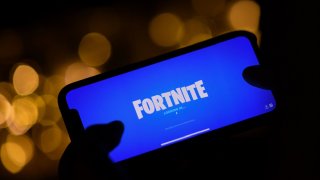
The company behind one of the most popular video games globally will pay more than half a billion dollars as part of a settlement reached with the Federal Trade Commission (FTC) for allegedly violating customer privacy rights, and putting underage users at risk.
Epic Games – the company behind the renowned games “Fortnite” and “Fortnite Battle Royale,” to name a few – was hit with a $520 million penalty over claims it violated child privacy rights and deployed “design tricks, known as dark patterns” that led to millions of players being unintentionally and unfairly charged.
Players were also allegedly locked out of the game, the FTC said, if they tried to dispute or cancel those charges.
In addition, FTC regulators said Epic Games violated the Children’s Online Privacy Protection Act (COPPA) when it collected personal information from children under the age of 13 without parental consent and enabled real-time voice and text chat communications by default, violating child privacy laws and putting users at risk of abuse.
If parents requested Epic Games to delete their children’s personal information, the FTC said the company required parents to “jump through unreasonable hoops, and sometimes failed to honor such requests.”

The $520 million fine includes $245 million that the FTC says it will use to refund eligible customers and a $275 million monetary penalty for allegedly violating the COPPA Rule, the FTC calling it “the largest penalty ever obtained for violating an FTC rule.”
In a statement online, Epic Games responded to the fine’s announcement saying, “No developer creates a game with the intention of ending up here. The video game industry is a place of fast-moving innovation, where player expectations are high and new ideas are paramount. Statutes written decades ago don’t specify how gaming ecosystems should operate.”
“We accepted this agreement because we want Epic to be at the forefront of consumer protection and provide the best experience for our players,” the company said.
Feeling out of the loop? We'll catch you up on the Chicago news you need to know. Sign up for the weekly> Chicago Catch-Up newsletter.
The criminal complaint filed in federal court focuses primarily on Epic’s most popular game Fortnite, which debuted in July 2017 and now has more than 400 million players nationwide and has earned the company more than $5 billion in revenues.
To read the full criminal complaint against Epic Games, click here.
Fortnite is free to download, but users can make in-game purchases such as character costumes, called “cosmetics” or “skins” in the game, as well as character dance moves, called “emotes” for their avatars.
Federal investigators allege users were unaware that Epic would save payment information and allow children to purchase in-game items, sometimes without the player’s knowledge or parent’s permission, if the user was underage.
If a user or parent tried to dispute a charge, the company allegedly would lock the player out of the game, the FTC said.
“The company has deployed a variety of dark patterns aimed at getting consumers of all ages to make unintended in-game purchases,” the FTC explained. “Fortnite’s counterintuitive, inconsistent, and confusing button configuration led players to incur unwanted charges based on the press of a single button.”
The video game maker said saving payment information was meant to be a convenient feature, but it has implemented new changes to how Fortnite operates.
In the company’s prepared statement, Epic said, “Saving payment information by default is a common way to streamline the checkout process, so players do not have to re-enter their payment method every time they make a purchase. We’ve agreed with the FTC to change this practice, and we now offer an explicit yes or no choice to save payment information.”
In addition, enabling voice and text settings automatically for underage children to chat with the outside world, harmed users, the FTC explained, saying, “Children and teens have been bullied, threatened, harassed, and exposed to dangerous and psychologically traumatizing issues such as suicide while on Fortnite.”
Regulators allegedly found evidence that Epic employees urged the company to change the default settings as early as 2017, but the company resisted turning them off.
Epic said Fortnite was always meant for teen and more mature players; still, it made changes to the gameplay months earlier this year.
Epic Games said, “Fortnite is rated Teen and is directed at an older teen and college-aged audience… In September, we implemented high privacy default settings for players under the age of 18. Chat defaults to “Nobody," profile details default to hidden, parties default to “Invite Only," and personalized recommendations are defaulted Off.”
To read Epic Games’ full statement on the FTC settlement, click here.
For parents and Fortnite players who believe they were charged for unwanted items in the game, or who tried to dispute wrongful charges with their credit card companies, they may be eligible for a refund, the FTC announced.
The FTC said it plans to use the $245 million fine “to provide refunds to Fortnite gamers in the U.S. who were affected by the company's billing and refund practices.”



